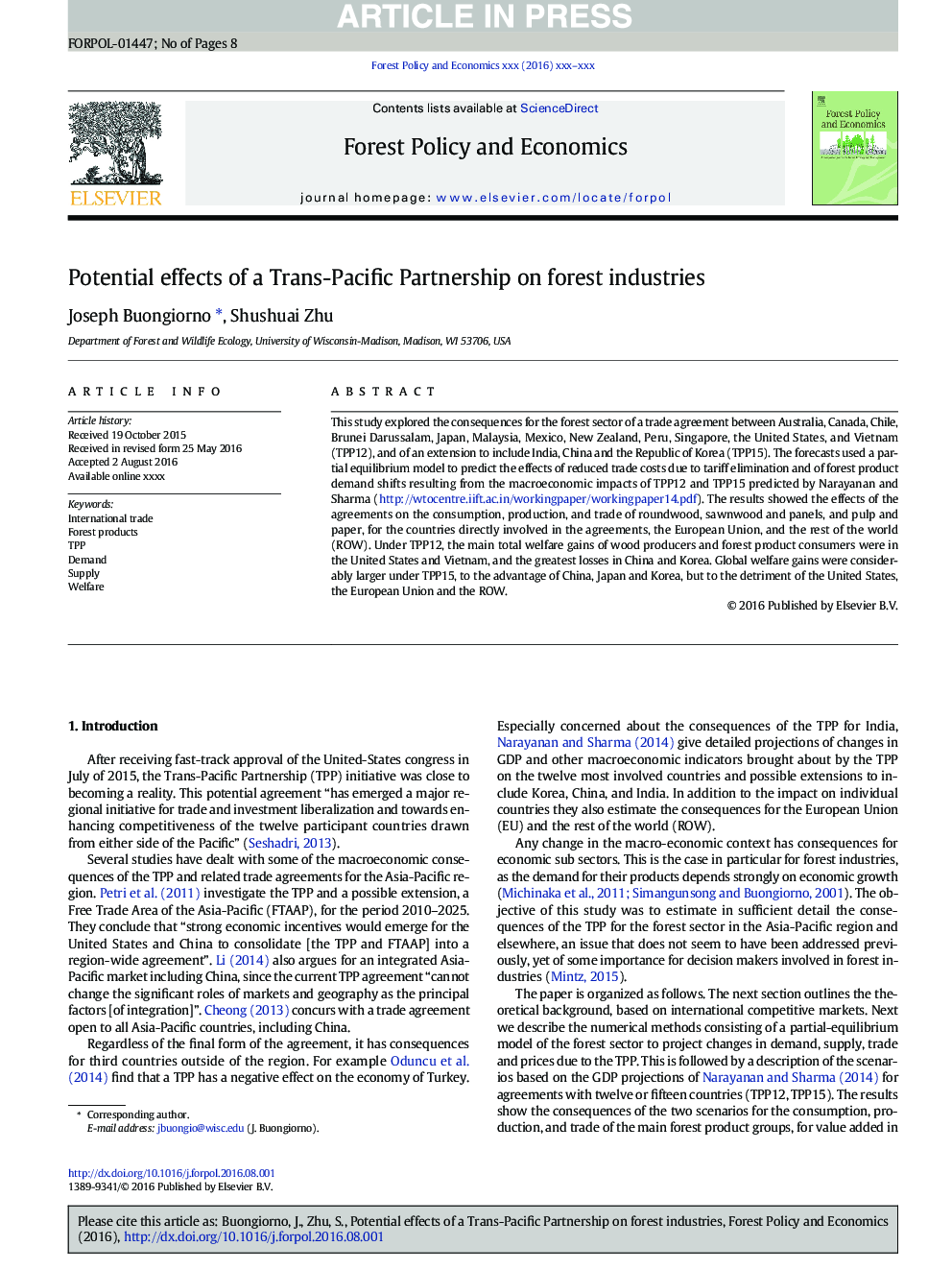| Article ID | Journal | Published Year | Pages | File Type |
|---|---|---|---|---|
| 4759747 | Forest Policy and Economics | 2017 | 8 Pages |
Abstract
This study explored the consequences for the forest sector of a trade agreement between Australia, Canada, Chile, Brunei Darussalam, Japan, Malaysia, Mexico, New Zealand, Peru, Singapore, the United States, and Vietnam (TPP12), and of an extension to include India, China and the Republic of Korea (TPP15). The forecasts used a partial equilibrium model to predict the effects of reduced trade costs due to tariff elimination and of forest product demand shifts resulting from the macroeconomic impacts of TPP12 and TPP15 predicted by Narayanan and Sharma (http://wtocentre.iift.ac.in/workingpaper/workingpaper14.pdf). The results showed the effects of the agreements on the consumption, production, and trade of roundwood, sawnwood and panels, and pulp and paper, for the countries directly involved in the agreements, the European Union, and the rest of the world (ROW). Under TPP12, the main total welfare gains of wood producers and forest product consumers were in the United States and Vietnam, and the greatest losses in China and Korea. Global welfare gains were considerably larger under TPP15, to the advantage of China, Japan and Korea, but to the detriment of the United States, the European Union and the ROW.
Related Topics
Life Sciences
Agricultural and Biological Sciences
Forestry
Authors
Joseph Buongiorno, Shushuai Zhu,
